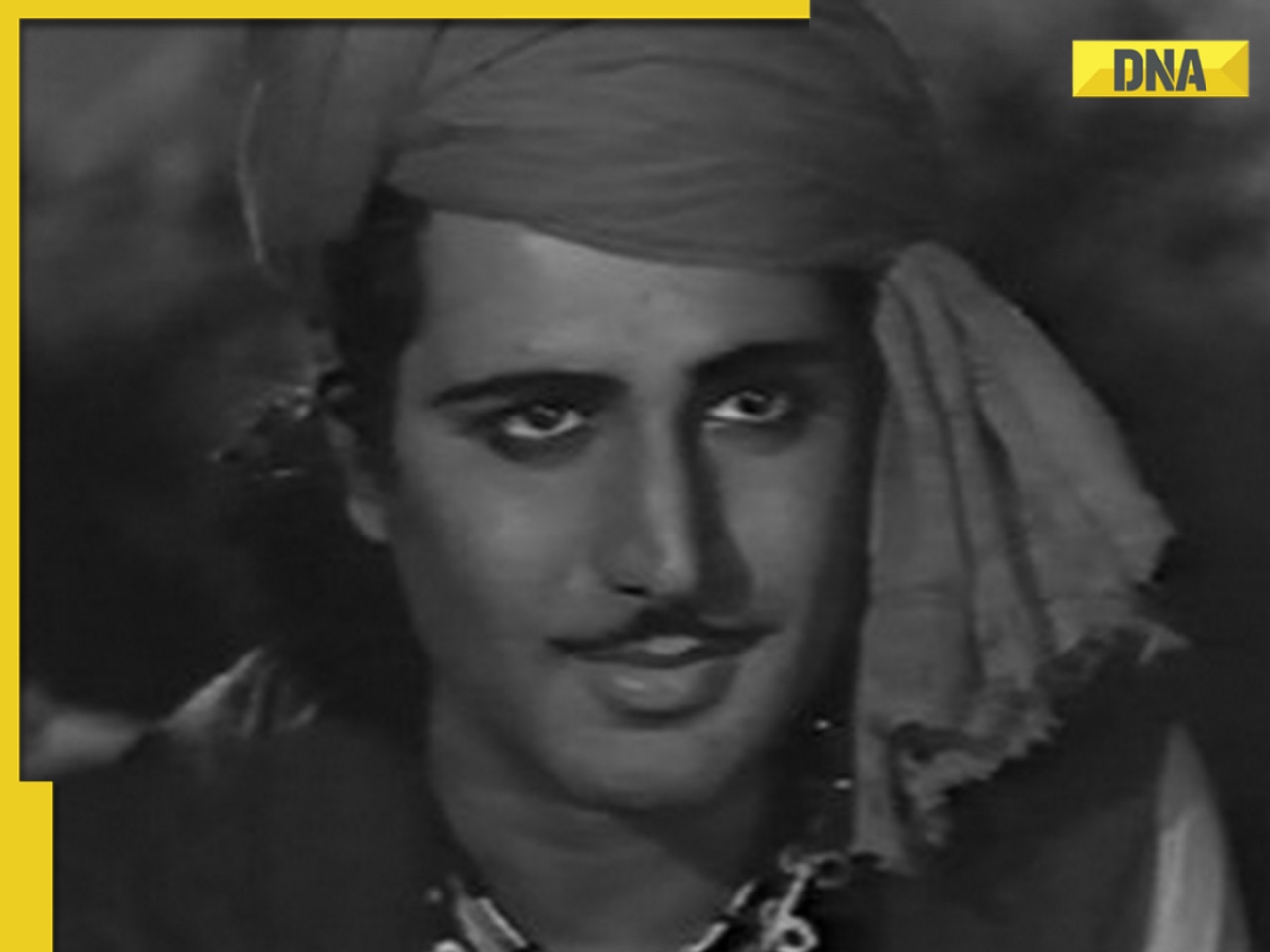Australia's cricketers rediscovered sportsmanship after a barrage of callers complaining about their behaviour reduced Cricket Australia's receptionist to tears.
SYDNEY: Australia's cricketers rediscovered sportsmanship after a barrage of callers complaining about their behaviour reduced Cricket Australia's receptionist to tears, a new official history says.
Authors Gideon Haigh and David Frith were given complete access to Cricket Australia's archives for the book 'Inside Story' and the governing body told them to produce a warts-and-all account of its activities.
"We ask the cricketers who wear the baggy green to play hard but fair and it was only logical to ask our historians to do the same," chairman Creagh O'Connor said.
The book gives insights into events that have shaped the game here since 1905, using both the archives of Cricket Australia -- formerly the Australian Cricket Board - and interviews with players and officials.
It recounts the controversial 'Bodyline' series against England in 1932/33, cricket's move to commercialism in the 1970s and confirms that Shane Warne's off-field behaviour was the reason he never captained the Australian Test team.
The book also details how in 2003 a humble receptionist shamed Australia's all-conquering cricketers into becoming better sportsmen.
Undisputed masters of the cricketing world, the Australian Test team in the early years of the millennium alienated even some of its own fans through a mixture of excessive sledging and boorish behaviour.
While successful Australian teams of the past had been lauded as the 'invincibles' and 'unbeatables,' this one was dubbed the 'unloveables' because of its snarling attitude and strutting manner.
The 2003 World Cup win was overshadowed by Shane Warne's drugs ban, Darren Lehmann was suspended for five games for yelling a racist term after being run out against Sri Lanka and other players were reprimanded for abuse and dissent.
The flashpoint came in the West Indies in May 2003, when paceman Glenn McGrath baited Ramnaresh Sarwan with a lewd taunt.
The batsman had the temerity to respond in kind, at which the Australian paceman exploded with rage, looming over the diminutive Sarwan and threatening to 'rip your throat out.'
The image was flashed around the world and the sporting reputation of Australia's players sank to a new low, reinforcing the impression that they could dish out abuse but not take it.
Cricket Australia chief executive James Sutherland said he knew the unsporting behaviour was damaging players' reputations, but reining it in was posing a problem.
"What became obvious in conversations with the players was that they were in denial, and they were in denial because they were insulated from the consequences of the fall-out from that sort of behaviour," Sutherland told the authors.
Cricket Australia's solution to the dilemma was simple and effective.
At a function in Sydney, officials took aside senior players including Steve Waugh, Lehmann, McGrath and Matthew Hayden and Ricky Ponting.
They confronted them with footage of recent incidents, along with comments from sponsors saying they were uncomfortable to be seen as supporting such behaviour and read letters and emails from outraged fans.
"Most effectively, they saw an interview with Emma Hopley, the Cricket Australia receptionist for the past year, who told of how she had been reduced to tears by fulminating members of the public," the book says.
It said Waugh was soon drafting a 'Spirit of Cricket' manifesto that set guidelines for the players' on- and off-field behaviour.
"I wanted us to be remembered for the right reasons," he said.
The Spirit of Cricket programme, extolling the virtues of playing 'hard but fair' was launched in October 2003 and the history book says it soon had an impact.
"Instances of truculence and petulance became more noteworthy for being rarer," the authors wrote, with Australia sustaining only one International Cricket Council charge in the next 28 Tests and one in the following 96 one-day internationals.
"During the Ashes series of 2005, Ponting was even criticised for being too friendly and easy going.
"As complaints go, it was an agreeable change."
"Inside Story: Unlocking Australian Cricket's Archives" is published by News Custom Publishing.
![submenu-img]() Indian-origin man says Apple CEO Tim Cook pushed him...
Indian-origin man says Apple CEO Tim Cook pushed him...![submenu-img]() Anil Ambani’s Rs 96500000000 Reliance deal still waiting for green signal? IRDAI nod awaited as deadline nears
Anil Ambani’s Rs 96500000000 Reliance deal still waiting for green signal? IRDAI nod awaited as deadline nears![submenu-img]() Most popular Indian song ever on Spotify has 50 crore streams; it's not Besharam Rang, Pehle Bhi Main, Oo Antava, Naina
Most popular Indian song ever on Spotify has 50 crore streams; it's not Besharam Rang, Pehle Bhi Main, Oo Antava, Naina![submenu-img]() Did Diljit Dosanjh cut his hair for Amar Singh Chamkila? Imtiaz Ali reveals ‘he managed to…’
Did Diljit Dosanjh cut his hair for Amar Singh Chamkila? Imtiaz Ali reveals ‘he managed to…’ ![submenu-img]() India's election process is an example for world's democracies: PM Modi after casting his vote
India's election process is an example for world's democracies: PM Modi after casting his vote![submenu-img]() DNA Verified: Is CAA an anti-Muslim law? Centre terms news report as 'misleading'
DNA Verified: Is CAA an anti-Muslim law? Centre terms news report as 'misleading'![submenu-img]() DNA Verified: Lok Sabha Elections 2024 to be held on April 19? Know truth behind viral message
DNA Verified: Lok Sabha Elections 2024 to be held on April 19? Know truth behind viral message![submenu-img]() DNA Verified: Modi govt giving students free laptops under 'One Student One Laptop' scheme? Know truth here
DNA Verified: Modi govt giving students free laptops under 'One Student One Laptop' scheme? Know truth here![submenu-img]() DNA Verified: Shah Rukh Khan denies reports of his role in release of India's naval officers from Qatar
DNA Verified: Shah Rukh Khan denies reports of his role in release of India's naval officers from Qatar![submenu-img]() DNA Verified: Is govt providing Rs 1.6 lakh benefit to girls under PM Ladli Laxmi Yojana? Know truth
DNA Verified: Is govt providing Rs 1.6 lakh benefit to girls under PM Ladli Laxmi Yojana? Know truth![submenu-img]() Alia Bhatt wears elegant saree made by 163 people over 1965 hours to Met Gala 2024, fans call her ‘princess Jasmine’
Alia Bhatt wears elegant saree made by 163 people over 1965 hours to Met Gala 2024, fans call her ‘princess Jasmine’![submenu-img]() Jr NTR-Lakshmi Pranathi's 13th wedding anniversary: Here's how strangers became soulmates
Jr NTR-Lakshmi Pranathi's 13th wedding anniversary: Here's how strangers became soulmates![submenu-img]() Streaming This Week: Heeramandi, Shaitaan, Manjummel Boys, latest OTT releases to binge-watch
Streaming This Week: Heeramandi, Shaitaan, Manjummel Boys, latest OTT releases to binge-watch![submenu-img]() Remember Ayesha Kapur? Michelle from Black, here's how actress, nutrition coach, entrepreneur looks after 19 years
Remember Ayesha Kapur? Michelle from Black, here's how actress, nutrition coach, entrepreneur looks after 19 years![submenu-img]() Remember Heyy Babyy's cute 'Angel' Juanna Sanghvi? 20 year-old looks unrecognisable now, fans say 'her comeback will...'
Remember Heyy Babyy's cute 'Angel' Juanna Sanghvi? 20 year-old looks unrecognisable now, fans say 'her comeback will...'![submenu-img]() DNA Explainer: Why Harvey Weinstein's rape conviction was overturned, will beleaguered Hollywood mogul get out of jail?
DNA Explainer: Why Harvey Weinstein's rape conviction was overturned, will beleaguered Hollywood mogul get out of jail?![submenu-img]() What is inheritance tax?
What is inheritance tax?![submenu-img]() DNA Explainer: What is cloud seeding which is blamed for wreaking havoc in Dubai?
DNA Explainer: What is cloud seeding which is blamed for wreaking havoc in Dubai?![submenu-img]() DNA Explainer: What is Israel's Arrow-3 defence system used to intercept Iran's missile attack?
DNA Explainer: What is Israel's Arrow-3 defence system used to intercept Iran's missile attack?![submenu-img]() DNA Explainer: How Iranian projectiles failed to breach iron-clad Israeli air defence
DNA Explainer: How Iranian projectiles failed to breach iron-clad Israeli air defence![submenu-img]() Most popular Indian song ever on Spotify has 50 crore streams; it's not Besharam Rang, Pehle Bhi Main, Oo Antava, Naina
Most popular Indian song ever on Spotify has 50 crore streams; it's not Besharam Rang, Pehle Bhi Main, Oo Antava, Naina![submenu-img]() Did Diljit Dosanjh cut his hair for Amar Singh Chamkila? Imtiaz Ali reveals ‘he managed to…’
Did Diljit Dosanjh cut his hair for Amar Singh Chamkila? Imtiaz Ali reveals ‘he managed to…’ ![submenu-img]() Watch: Arti Singh gets grand welcome at husband Dipak's house with fairy lights and fireworks, fans say '
Watch: Arti Singh gets grand welcome at husband Dipak's house with fairy lights and fireworks, fans say '![submenu-img]() Meet actress, who belongs to family of superstars, quit films after 19 flops, no single hit in 9 years; is still worth…
Meet actress, who belongs to family of superstars, quit films after 19 flops, no single hit in 9 years; is still worth…![submenu-img]() Meet star, TV’s SRK, who used to drink alcohol on set, one mistake ruined career; was jobless for 3 years, is now...
Meet star, TV’s SRK, who used to drink alcohol on set, one mistake ruined career; was jobless for 3 years, is now...![submenu-img]() IPL 2024: Suryakumar Yadav's century power MI to 7-wicket win over SRH
IPL 2024: Suryakumar Yadav's century power MI to 7-wicket win over SRH![submenu-img]() DC vs RR, IPL 2024: Predicted playing XI, live streaming details, weather and pitch report
DC vs RR, IPL 2024: Predicted playing XI, live streaming details, weather and pitch report![submenu-img]() Watch: Team India’s new jersey for T20 World Cup 2024 unveiled
Watch: Team India’s new jersey for T20 World Cup 2024 unveiled![submenu-img]() DC vs RR IPL 2024 Dream11 prediction: Fantasy cricket tips for Delhi Capitals vs Rajasthan Royals
DC vs RR IPL 2024 Dream11 prediction: Fantasy cricket tips for Delhi Capitals vs Rajasthan Royals![submenu-img]() IPL 2024: Kolkata Knight Riders take top spot after 98 runs win over Lucknow Super Giants
IPL 2024: Kolkata Knight Riders take top spot after 98 runs win over Lucknow Super Giants![submenu-img]() Indian-origin man says Apple CEO Tim Cook pushed him...
Indian-origin man says Apple CEO Tim Cook pushed him...![submenu-img]() Meet man whose salary was only Rs 83 but his net worth grew by Rs 7010577000000 in 2023, he is Mukesh Ambani's...
Meet man whose salary was only Rs 83 but his net worth grew by Rs 7010577000000 in 2023, he is Mukesh Ambani's...![submenu-img]() Job applicant offers to pay Rs 40000 to Bengaluru startup founder, here's what happened next
Job applicant offers to pay Rs 40000 to Bengaluru startup founder, here's what happened next![submenu-img]() Viral video: Family fearlessly conducts puja with live black cobra, internet reacts
Viral video: Family fearlessly conducts puja with live black cobra, internet reacts![submenu-img]() Woman demands Rs 50 lakh after receiving chicken instead of paneer
Woman demands Rs 50 lakh after receiving chicken instead of paneer

























































)
)
)
)
)
)